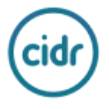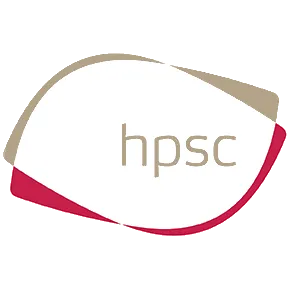Computerised Infectious Disease Reporting (CIDR)

What is Computerised Infectious Disease Reporting (CIDR)?
Computerised Infectious Disease Reporting (CIDR) is an information system developed to manage the surveillance and control of infectious diseases in Ireland.
CIDR is a collaborative solution which the HPSC manage on behalf of programme stakeholders: the former health boards now Public Health Areas, the Food Safety Authority of Ireland, the Food Safety Promotion Board and the Department of Health.
All medical practitioners, including clinical directors of diagnostic laboratories, are required to notify the Medical Officer of Health(MOH)/Director of Public Health (DPH) of certain diseases. This information is used to investigate cases thus preventing spread of infection and further cases. The information will also facilitate the early identification of outbreaks. It is also used to monitor the burden and changing levels of diseases, which can provide the evidence for public health interventions such as immunisation.
CIDR is used by laboratories, Public Health Areas and HPSC to collect, analyse and interpret notification data in order to investigate cases, prevent spread of infection, identify potential outbreaks and provide evidence for public health policies and actions.
What is the CIDR National Steering Committee?
The Steering Committee oversees programme of work of the CIDR system. It is currently made up of 17 members and one Chair. Membership of the Steering Committee is representative of the main partners of the programme. The Steering Committee meets four times a year and secretarial support is provided by the Surveillance Information Systems Unit (SISU) team in HPSC.
What does the CIDR National Steering Committee do?
The Steering Committee gives advice and guidance on important technical, logistical, administrative, financial and ethical aspects of the Programme. They decide what work should be carried out and make sure this work stays within agreed policies and procedures at all times. The Committee also ensures that all activities of the Programme are fair, transparent and open to public scrutiny.
A summary of the Committee’s work is outlined in the Terms of Reference.
To provide strategic guidance for CIDR by approving short, medium and long-term projects
Agree the annual and forward programme of work and oversee its delivery
Review changes to the programme as it develops, including changes to current and future priorities, methodologies and budget
Provide support, expertise and advice that will contribute to and strengthen the design of the CIDR solution and third-party applications in line with Public Health priorities
Identify, monitor and propose solutions to potential risks to the programme of work, including any conflicts that may arise
Encourage visibility, publication and use of the data from the CIDR solution to support public health policies and actions
Oversee programme compliance with legal and ethical principles, in order to promote and maintain public confidence and trust
Advise on financial matters, including audit requirements
To promote collaboration and ownership of the CIDR system across the partner organisations.
To ensure appropriate CIDR governance structures remain in place
To evaluate key recommendations from and provide guidance to:
National Director of Public Health
Director of National Health Protection
National Clinical Lead Surveillance
HPSC CIDR Team
CIDR National User Group
National CIDR Business Rules Committee
National CIDR Peer Review Group
Last updated: 27 July 2023
CIDR National Steering Committee: Terms of Reference
27, Jul 2023
261.89 KB



